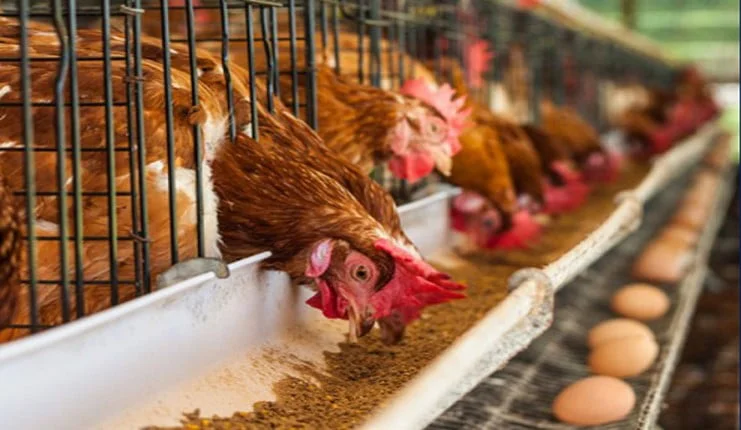 Olugbemi. Adeyinka Ogunleye
1 week ago
Olugbemi. Adeyinka Ogunleye
1 week ago
Overview
How To Start Small-Scale Feed Mill Business in Nigeria
Starting a small-scale feed mill business in Nigeria is a smart investment due to several favorable conditions. Nigeria’s increasing population has led to rising demand for animal protein, including meat, eggs, and dairy products. This growing demand creates an ever-expanding market for animal feed. For farmers, producing their own feed means cost savings, especially as the prices of commercial feeds continue to rise. Additionally, owning a feed mill gives you control over the quality and nutritional value of the feed, which directly impacts livestock productivity and health.
With the abundance of raw materials like maize, soybeans, groundnut cake, and cassava peel available locally, sourcing feed ingredients becomes easier and more affordable. There’s also a strong opportunity to serve other small-scale farmers in your area by selling surplus feed, thereby turning your feed mill into a source of income, not just a support tool for your farm. Owning a feed mill has so many practical advantages for small-scale farmers and agripreneurs. It allows you to tailor feed to meet the exact nutritional needs of different animal species and their growth stages. This level of control results in better growth rates, higher productivity, and improved animal health.
With your own feed mill, you no longer depend entirely on fluctuating commercial feed prices, helping you better manage your production costs. You also have the ability to standardize the quality of feed, producing consistent batches that build trust among your buyers if you decide to sell commercially. In addition, owning a feed mill provides a way to utilize agricultural by-products such as maize husks or cassava peels, reducing waste and turning them into value-added products. This contributes to sustainability while keeping your operational costs low.
Understanding the basics of feed formulation is key to producing high-quality feed. Different animals have different dietary needs, and these needs also vary by growth stage. For example, poultry feed must be rich in protein and energy to support fast growth, especially in broilers, while layers require a good balance of calcium and phosphorus to support eggshell production. Cattle feed often focuses on fiber and energy, especially in dairy cows and beef cattle. Swine need high-energy, high-protein feed with controlled fiber content, while fish require highly digestible, protein-rich pellets.
For pets, feed must be balanced with the right mix of protein, fats, vitamins, and minerals depending on their age and activity level. Feed formulation can be done manually using spreadsheets, or with feed formulation software. Consulting with an animal nutritionist is also recommended when designing new feed formulas. The key is to combine affordable, locally available raw materials with supplements that ensure complete nutrition, leading to better animal performance. To operate a small-scale feed mill in Nigeria legally and safely, there are important regulatory requirements to fulfill. First, your business must be registered with the Corporate Affairs Commission (CAC) to operate as a recognized entity.
Additionally, you need a valid license from the Nigerian Institute of Animal Science (NIAS), which oversees feed production standards. If you plan to sell your feed commercially, especially in packaged form, you may also need to comply with NAFDAC regulations, particularly for labeling and packaging. The aspect of quality control is also very important; your facility should follow proper hygiene protocols, and your feed should be tested for nutritional content and safety. It is essential to maintain records of your ingredients, formulations, and batches produced.
These regulations ensure that your feed is safe for animal consumption, protect your business from legal penalties, and build trust with customers who rely on the quality and consistency of your products.
Challenges
Power supply is one of the most common issues, especially in rural areas, making it essential to invest in a backup generator or solar power solution. Fluctuations in the cost and availability of raw materials can affect your production costs, so it’s wise to buy in bulk during harvest periods and build relationships with reliable suppliers.
Technical knowledge may be lacking initially, but this can be addressed through training and mentorship from experienced feed millers or consultants. Gaining the trust of customers is another challenge, particularly when starting out.
Offering product samples, demonstrating visible results on your own farm, and maintaining high quality can help build a reputation over time.
Additionally, competition from larger feed manufacturers can be intense, but you can stand out by offering personalized service, lower prices, or niche products like organic or medicated feed.
With careful planning and adaptability, these challenges can be managed effectively, allowing your business to grow sustainably. It is also worthy of note that the financial commitment is ongoing. Animal feed production business requires high initial capital and operating costs. Unexpected costs such as machinery breakdowns and increase in the price of raw material can occur. It is therefore necessary to have a financial cushion or backup plan to keep the business stable through such challenges.
Credit: Agric Nigeria



